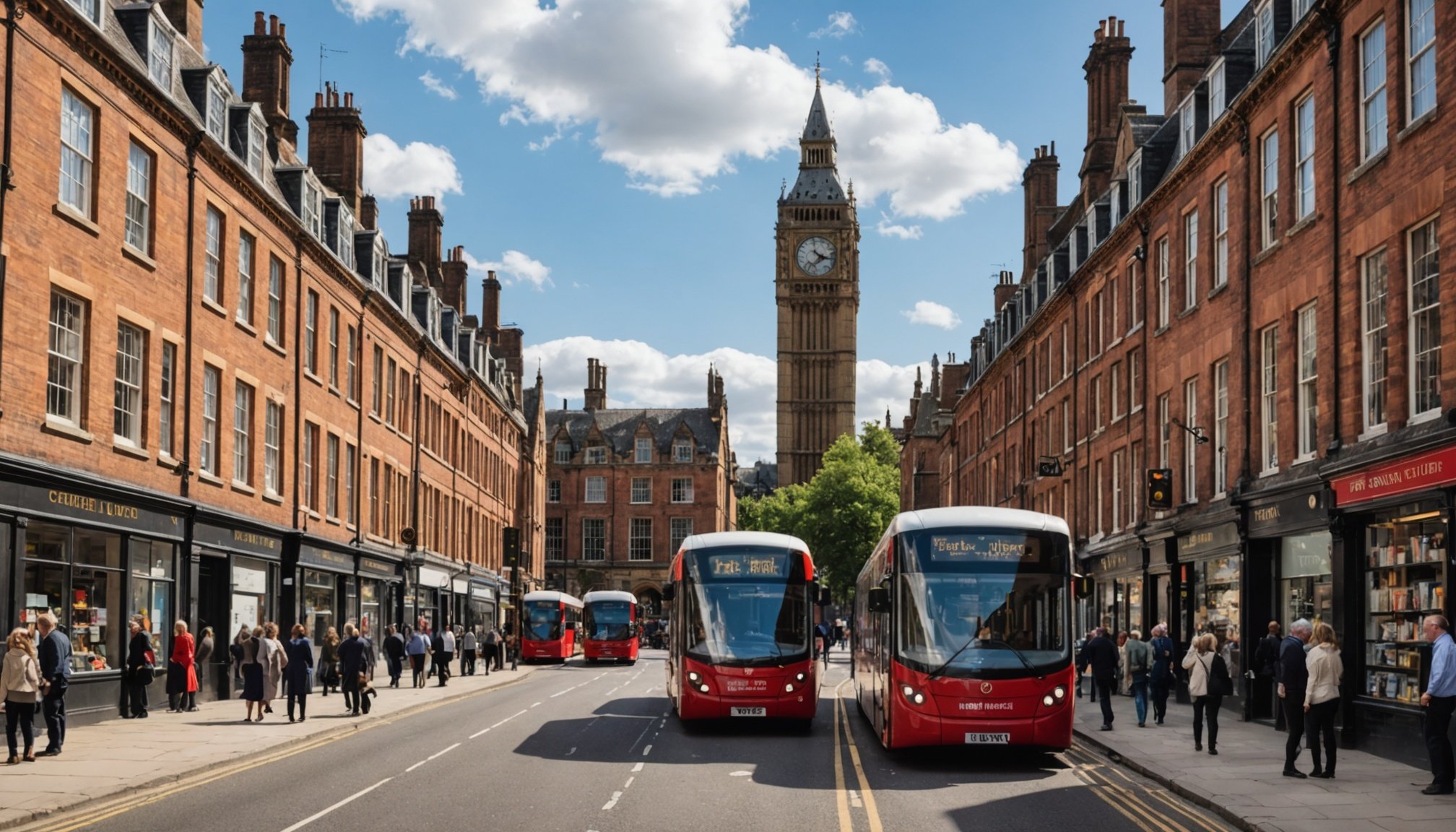Overview of British Publishing History
British publishing history, an illustrious tapestry woven over centuries, has significantly shaped global literature. From early manuscripts to contemporary publications, the journey has been marked by pivotal milestones influencing cultures worldwide. The evolution began with the establishment of the first printing press in England by William Caxton in the 1470s, which revolutionised access to literature. This innovation catalysed the production of notable works, including Chaucer’s “Canterbury Tales.”
As the centuries progressed, Great Britain became a powerhouse of literary content, with publishing houses like Penguin Books playing a crucial role in making literature affordable and accessible. This era also witnessed the emergence of influential authors such as Dickens, Austen, and the Brontë sisters, who left indelible marks on cultural significance.
Also to read : Uncover the best uk destinations for guided tours exploring the rich history of british pirates!
Preserving this rich literary heritage is paramount, and tours offer an engaging way to explore it. These tours focus on significant publishing sites and delve into the stories of both renowned and overlooked authors. Visitors can trace the footsteps of literary evolution through historic libraries, bookshops, and the homes of celebrated writers.
Such experiences not only celebrate the past but also inspire future generations to value the cultural contributions of British literature, emphasising the importance of maintaining and exploring this profound legacy.
Topic to read : Discover authentic british hat-making: must-visit workshops showcasing exquisite craftsmanship
Top UK Cities for Literary Tours
Exploring the literary cities of the UK offers a captivating journey into the heart of British publishing history. When selecting top travel destinations, several criteria are considered, including each city’s historical contributions to literature, cultural significance, and the richness of its literary experiences. These elements ensure a comprehensive cultural exploration.
Notable literary cities include London, Oxford, and Bath, each renowned for its unique influence on British literature. London, the vibrant capital, showcases an impressive array of historical sites and publishing history, from the British Library to Fleet Street’s iconic printing presses. Oxford, famed for its universities, boasts a rich academic and literary tradition, hosting significant literary events and housing renowned authors and publishers. Meanwhile, Bath offers a quaint and intimate glimpse into the world of classic British literature, famously linked to Jane Austen’s life and works.
Comparing experiences across these literary cities reveals diverse insights. London is ideal for experiencing grand publishing events and landmark sites. Oxford provides a deep dive into literary academia and influence. Bath offers a more personal connection to literature, with its charming architecture and settings that hark back to the Regency era.
Notable Publishing History Tours
Exploring British publishing tours offers a unique insight into the literary excursions available throughout the UK. These guided experiences are tailored to highlight key historical sites and figures in British publishing, ensuring a memorable journey for literature enthusiasts.
London: Capital of Publishing
London’s position as a publishing powerhouse is undisputed, with various tours offering insights into its rich literary culture. Popular options include visits to prominent publishing houses and historical sites like Fleet Street. These tours also delve into the vibrant publishing events that occur throughout the city, providing an immersive experience for visitors.
Oxford: The Hub of Literature
Known for its academic prowess, Oxford is a beacon of literary significance. Dedicated tours focus on celebrated authors and their associated publications, often traversing iconic landmarks tied to the city’s storied publishing history. Such excursions provide a deep understanding of Oxford’s longstanding contribution to literature.
Bath: A Literary Retreat
Bath serves as a tranquil destination, deeply connected to renowned author Jane Austen. Tours centred on her life and works offer intimate glimpses into the spaces she inhabited and the stories she authored. Additionally, literary festivals and events in Bath celebrate its elegant historic allure and lasting literary legacy.
Local Authors and Their Impact
The UK boasts a rich tapestry of British authors whose works have left lasting imprints on both local and global literature. Each city’s unique contribution to regional literature adds layers to the nation’s literary fabric, influencing myriad genres and styles. For instance, Liverpool’s connection to the Mersey Beat movement heavily influenced British poetry and music. As a stark contrast, Edinburgh, with its UNESCO City of Literature status, showcases authors like Ian Rankin, whose detective novels explore the city’s darker undercurrents.
These literary influences not only enhance their regions’ cultural tapestry but also inspire new waves of writers and readers. Understanding these authors in the context of their environment provides insight into their inspirations and the distinct flavour each city contributes to British literature.
A visit to these cities offers a nuanced understanding of how local authors wove their hometowns into their narratives. Such exploration underscores the profound impact of environment on storytelling. By delving into these regional connections, literature enthusiasts can appreciate the diverse influences shaping the broader literary landscape. Engaging with these influences allows for a deeper appreciation of the symbiotic relationship between authors and their surroundings.
Practical Tips for Planning Your Visit
Planning a visit to explore literary sites in the UK requires thoughtful consideration. Travel tips UK are essential for a seamless experience. First, decide on the best times to visit. Spring and autumn are ideal, as they often coincide with literary festivals and events. Summer can be busier, but it provides the longer days conducive to exploring.
When it comes to accommodations, choosing places near literary landmarks can enrich your experience. Historical inns or boutique hotels often add a touch of authenticity, immersing you in the literary past. In Oxford, consider lodgings close to the university, while in Bath, opt for somewhere near the Jane Austen Centre.
Securing tour bookings in advance is prudent, especially for popular excursions. Many guided experiences have limited spots and fill up quickly. Utilise online platforms to find schedules, availability, and possibly early bird discounts.
Lastly, understanding local transportation options can enhance your travel. In London, the underground and buses are convenient, while in smaller cities, walking or hiring bikes offers an intimate exploration. Equipping yourself with a map or a reliable app ensures you navigate these historic streets with confidence. By planning ahead, you maximise your literary journey’s enjoyment and depth.
Resources for Further Exploration
Venturing into British publishing history doesn’t end with a tour. To deepen your understanding, explore a range of enriching literary resources. Begin with curated books and articles that detail the UK’s publishing evolution and its cultural significance. Prominent works such as “A History of British Publishing” by John Feather provide comprehensive insights into the literature evolution and the impact of British authors.
For immersive experiences, investigate websites and organisations focused on literary tourism. The British Library offers digital resources and exhibitions that celebrate the UK’s rich literary heritage. Similarly, the UK Travel and Tourist Information website lists important literary sites to visit.
Connect with online communities and forums like Goodreads and The Literature Network, where enthusiasts and experts discuss further reading recommendations and host discussions about their literary influences. These platforms offer peer interaction, which is invaluable for understanding and appreciating the broader literary landscape.
Utilising these educational materials, you not only continue your cultural exploration but also contribute to preserving and celebrating the vitality of British literature. This holistic approach ensures a more profound and lasting engagement with the UK’s literary legacy.










